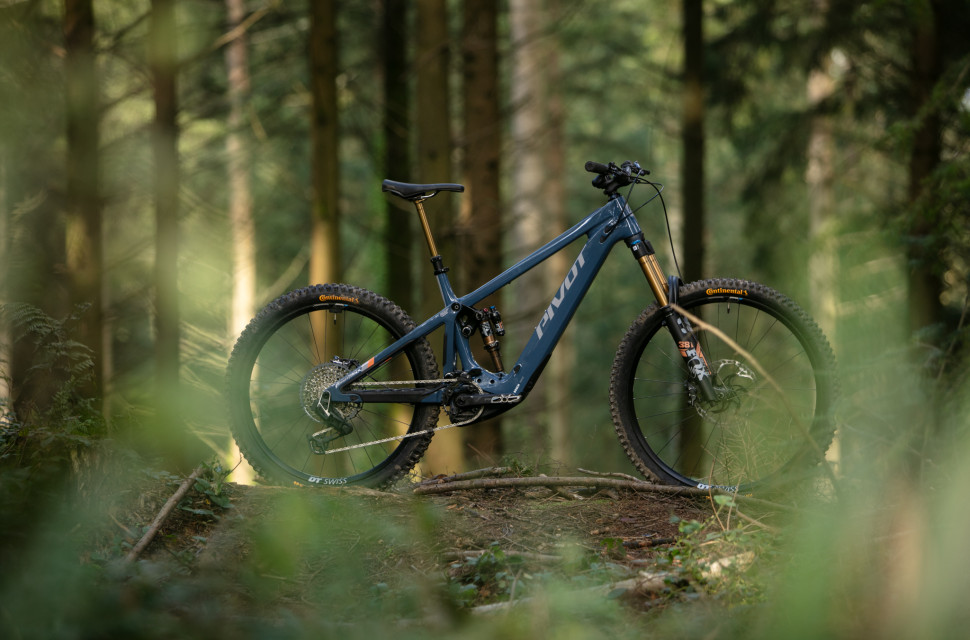
- Composed in all situations
- Rear end traction
- Super manoeuvrable
- High price
- Under-braked
- Bosch motor rattle
The Pivot Shuttle comes in three flavours, but the LT version is the hard-hitting, 160mm rear travel, mixed-wheeled ripper. With dialled geometry, a pretty reasonable spec and excellent ride characteristics, it has a confidence-inspiring ride. Cornering, braking and high-speed trails are handled with little dramatics whilst the climbing is dispatched with comfort and plenty of traction. It isn’t perfect and the eye-watering price makes it hard to justify it as good value for money but the performance on offer is top-tier and certainly worth trying out if this fits your budget.
- Best e-MTBs 2024 - top-performing e-mountain bikes for every situation
- Whyte E-Lyte Evo RS e-MTB review
- How to store an e-MTB - storage solutions and best practices
Pivot Shuttle LT Pro XO e-MTB – Technical details
The Shuttle LT uses 160mm rear travel and 170mm up front. It packs a 750Wh battery and a Bosch CX race motor into a full carbon frame. The bike comes standard with a mixed wheel (mullet) set-up but does have the adjustment to run full 29er in the high mode. Speaking of adjustment, the frame features a flip chip at the top of seat stays, that have high and low mode. One feature that stands out is the super-boost rear end (157mm spacing) is an “industry standard” but not commonly seen.
Pivot builds its bikes around the Dave Weagle (DW) link which claims a range of advantages and desired features that optimise the way the bike rides. The anti-squat control is at the top of the list which counteracts weight shift whilst accelerating, it reduces the bike squatting as the rider’s weight shifts back keeping the bike in a neutral position.
On the climbs, the platform reduces the rear suspension bobbing while pedalling and maintains sensitivity to provide traction whilst descending without feeling vague or wallowing. The rear end has a path where the wheel moves slightly back – then up and over to help displace the force of hitting the edge. Under braking, the suspension is claimed to remain active where the braking forces don’t extend or compress the shock which would unsettle the bike.
Internal cable routing keeps things clean, while a bottle mount on the downtube and a tool mount under the top tube keeps things functional. There is plenty of rubber protection around the chainstay to keep the chain slap noise to a minimum and more rubber on the downtube to protect the frame against rock strikes.
The Shuttle LT comes in four sizes (Small – X-large). Reach numbers start at 445mm and grow approximately 20mm per size. The geometry is nothing outrageous, just tried and tested numbers. A 64-degree head angle gives a nice balance between manoeuvrable yet still stable at speed and the same can be said for the 441mm chain stays although the chain stays are the same length across all sizes.
An effective seat angle of around 77-degrees (dependent on frame size) is right on the money for an efficient seated position and with a straight seat tube there is plenty of room for a long dropper. The standover is nice and low giving plenty of room to move on the bike whilst the stack is generous giving a strong and tall standing position ideal for the steeps.
At least on paper, this should result in a bike that is stable at speed yet still lively enough on tech, should be comfortable on the steeps and climb comfortably.
Pivot Shuttle LT Pro XO e-MTB – Componentry
The Shuttle LT comes in a range of spec options which can be a little mind-boggling but here is the simple breakdown. All spec levels come fitted with the same 750Wh battery, Bosch CX race motor, Continental Kyrptotal tyres and four-piston brakes with Galfer discs.
The entry-level Ride SLX/XT retails at £9,000 and uses Fox Performance suspension with a drivetrain made up of Shimano Deore and SLX parts utilising an XT rear derailleur. Brakes are also covered by Shimano in SLX flavour. DT Swiss H1900 wheels round off the package.
Moving to the mid-level Pro X0 pictured here, the suspension sees a hefty upgrade to Fox factory spec; the drivetrain goes wireless with Sram X0 derailleur and GX chain/cassette. The brakes are still with Shimano but now at XT level, and the DT Swiss wheels remain alloy but improved with HX1501. These improvements drive the retail price up to £11,400.
The top-tier Team XX model uses the same factory fork but the rear shock is beefed up using the Float X2 in factory flavour. The drivetrain remains wireless and is now full SRAM XX, brakes remain Shimano but are now top-spec XTR stoppers. More carbon is introduced with Praxis carbon cranks with the DT Swiss wheels (HXC1501). For all this, you’ll be looking at spending £13,400.
To add to the lineup Pivot offers some optional extras, alongside the 750Wh battery you can plug in a 250Wh range extender that’ll set you back another £450. Although the Fox factory suspension is already market-leading, if you want more on the Pro or Team models there is an option for the Live Valve Neo electronics which adds another £1,500 to the price tag.
Pivot Shuttle LT Pro XO e-MTB – Set-up
Pivot includes a handy suspension set-up guide with the bike (which can also be found on Pivot’s website) which gives a comprehensive baseline to get you up and running. Following the guide I set the sag using the provided indicator on the rear shock and used 100psi in the fork. The rebound was set quite fast to my preference and after a couple of car park bounces I got the front and rear rebound feeling balanced.
The Kyrptotal tyres with the “enduro” casing are pretty tough so I started with 22psi in the front and 24psi in the rear, perhaps on the softer side but most of my riding doesn’t feature many square edges so I opted for more grip over pinch protection.
The eBike Flow app is worth downloading to make the bike more user-friendly. It gives battery percentages and estimated range on the fly which is handy to see when you’re running low on power. Aside from the real-time data, it also allows you to adjust the different assistance modes.
Pivot Shuttle LT Pro XO e-MTB – Performance
The Bosch CX Race motor is the brand's premium offering so the performance and it's pretty well refined as expected. The lack of an information screen is a shame but the predicted range and exact battery percentage level can be found within the app.
Its four modes give a good range of assistance although I adjusted the eco mode down in favour of greater battery life as I found it was quite eager to help. The power assistance comes in naturally and as with many different motors, it rewards cadence to get the most out of the motor. Battery life is on par with other e-MTBs of similar power and battery size and I found the first light on the top tube display (10%) drops off surprisingly quickly but I could get around 1,000-1,200m of climbing without worrying about power too much. One major gripe of the Bosch CX motor is the rattle whilst descending, I think it's related to the freewheel on the motor and unfortunately, it is very noticeable when riding over trail chatter.
On the note of descending, the Shuttle LT is an exceptional ride, feeling sure-footed yet manoeuvrable. The 22.27kg weight meets a happy medium, which allows the suspension to work in a way that it doesn’t on an analogue bike yet isn’t too heavy that it’s a brute and hard to control. The factory-level suspension is supple, providing lots of grip while having plenty of ramps to remain composed on the bigger hits. Under braking, the DW Link remains active, allowing the bike to track the ground while remaining stable.
The geometry and the mullet setup create a bike that is easy to change direction, manageable on the steep sections and feels stable at speed – a confidence-inspiring ride that eggs you on to push a little harder. The bike especially shines in the corners where the geometry makes the bike turn in easily, the higher stack gives great control, and the bike feels like it's pivoting around the rider.
While pushing on the tyres gives plenty of grip and feels predictable, I wish the brakes were a little more beefy. The four-piston XT brakes do stop but I’d like something with more bite and power to reel in an e-bike – something like a SRAM Maven, Magura MT7 or Hayes Dominion A4 would be expected in this category and at this price point.
A small gripe, not Pivot’s fault, are the buttons for the Bosch motor controller and the AXS shifter pod – both are very sensitive, which meant I’d regularly double push a button by accident, either drastically changing the motor assistance or gearing.
The Shuttle LT’s geometry shines again when climbing with a well-centred and comfortable seat position. The rider's weight is positioned to give a stable climb, at no point did I feel the front wanting to lift or wash when pointing up the hill. With the rear end staying active there was plenty of traction across a range of terrain but I didn’t feel like it was bobbing or inefficient – not that this is such a concern when being electrically assisted.
Pivot Shuttle LT Pro XO e-MTB - Verdict
With the base model Shuttle LT retailing and the Pro XO model (pictured here) retailing at a respective £9,000 and £11,400, value is not a USP here. No doubt the performance and quality of the construction is top notch but there are certainly other options on the market.
For £11,000, Trek offers the Rail+ in the 9.9 guise. This includes a full XO drivetrain, top-end Rockshox suspension and carbon wheels. It gets a CX motor, although not the race version, and a slightly larger 800Wh battery. The only downside is the weight, which is close to 2kg more than the Shuttle LT.
For a little more money, coming in at £12,000 is the Yeti 160E. With Fox factory suspension, full XO transmission and alloy wheels the spec is similar to the Shuttle LT Pro XO however Yeti use Shimano for the motor and it comes with a smaller 630Wh battery.
The Pivot Shuttle LT is a pleasure to ride; its composure and poise on the trails are second to none, and it certainly feels like it's carrying less than its 22kg weight. Good job.








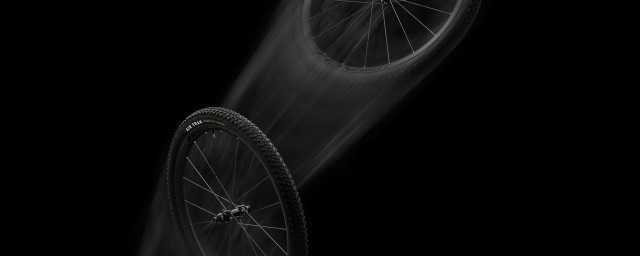


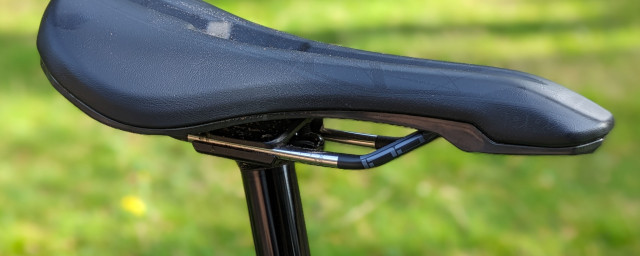
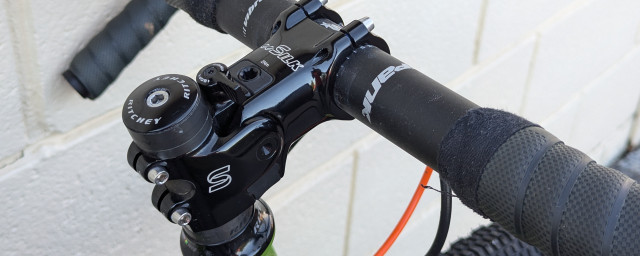

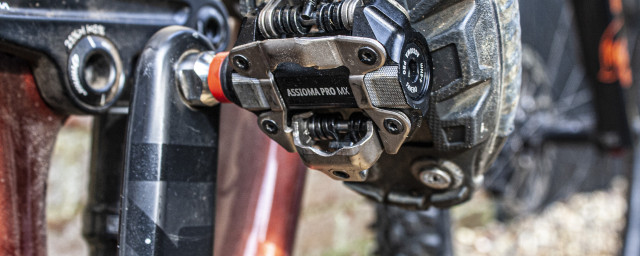
Add comment